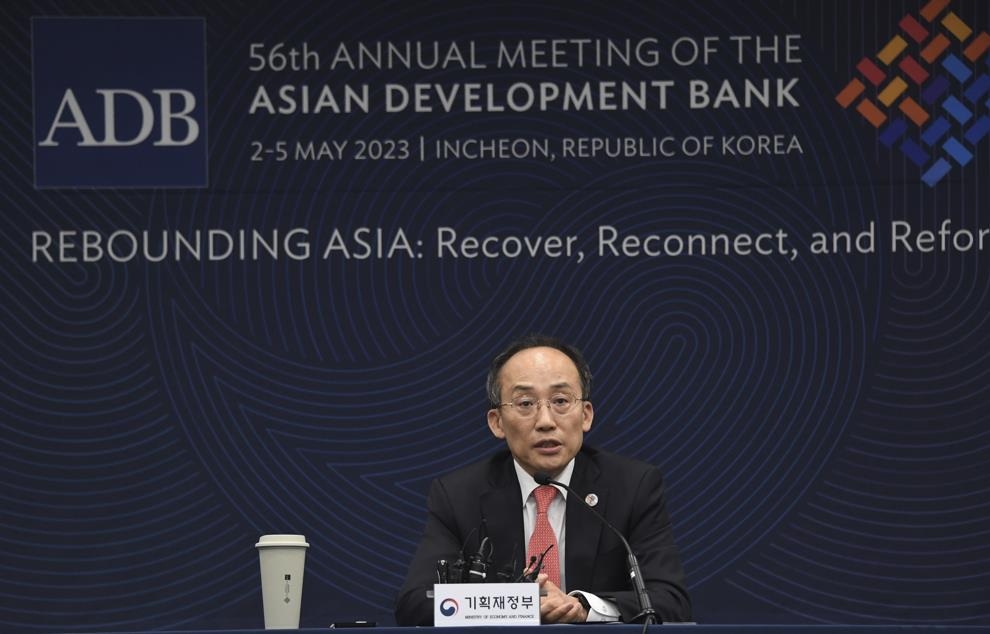- California Assembly OKs highest minimum wage in nation
- S. Korea unveils first graphic cigarette warnings
- US joins with South Korea, Japan in bid to deter North Korea
- LPGA golfer Chun In-gee finally back in action
- S. Korea won’t be top seed in final World Cup qualification round
- US men’s soccer misses 2nd straight Olympics
- US back on track in qualifying with 4-0 win over Guatemala
- High-intensity workout injuries spawn cottage industry
- CDC expands range of Zika mosquitoes into parts of Northeast
- Who knew? ‘The Walking Dead’ is helping families connect
Taming inflation still in focus, extra budget not under consideration: Choo
South Korea’s finance minister said Thursday taming inflation remains the top priority for the country’s economic policy, noting a hasty transition may reignite inflationary pressure.
Finance Minister Choo Kyung-ho made the remark during a press conference on the sidelines of the 56th Annual Meeting of the Board of Governors of the Asian Development Bank in Incheon, 27 kilometers west of Seoul.
“Unstable factors from home and abroad still linger here and there,” Choo said. “I believe (South Korea) needs to maintain its policy direction of solidifying the trend of price stabilization.”

Consumer prices grew at the slowest pace in more than a year in April on falling global oil prices, in a possible signal that inflation has receded.
The figure rose 3.7 percent last month from a year earlier, marking the first time in 14 months that the on-year inflation growth fell below 4 percent. It jumped to as high as 6.3 percent in July before showing an overall downward trend.
Choo, however, said despite recent signs of improvement, South Korea still needs to wait as a hasty transition will lead to price instability.
The finance minister also reiterated his position that no extra budget is being considered, despite concerns over falling tax revenue.
“We are not reviewing an extra budget,” Choo said, while acknowledging that the country’s tax revenue faces a challenging situation.
South Korea’s tax revenue slipped 24 trillion won (US$8.1 billion) on-year in the first three months of 2023. In March alone, the country’s tax revenue came to 32.8 trillion won, down 8.3 trillion won from the previous year.
The ministry earlier attributed the decline to the weak housing market coupled with sluggish exports, which in turn led to less corporate profits.
“The issue is linked to the economy and the slowdown in the property market. The business condition of companies is not good as well,” the finance minister said, noting the trend is likely to continue this year.
Choo, however, said the government will roll out expenditures related to the people’s livelihood as planned by utilizing surplus money from the previous year’s budget.











